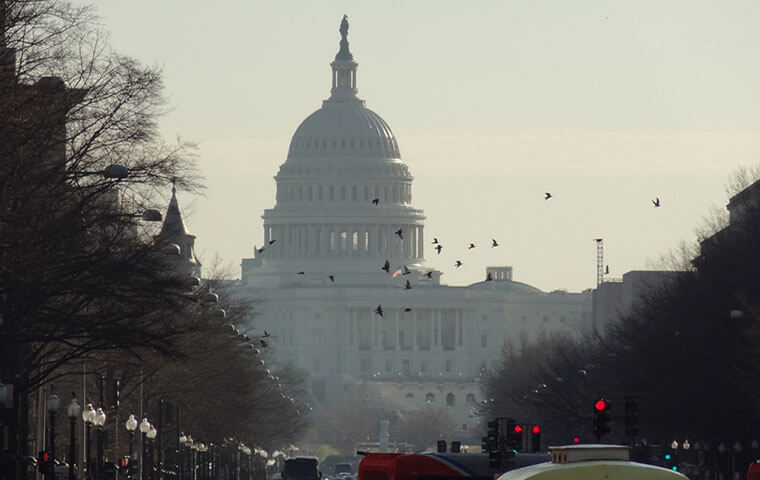 The wrapup bill would make several revisions to retirement savings plans such as the TSP. Image: Arthur Matsuo/Shutterstock.com
By: FEDweek Staff
The wrapup bill would make several revisions to retirement savings plans such as the TSP. Image: Arthur Matsuo/Shutterstock.com
By: FEDweek StaffAmong the many provisions in a massive wrapup spending bill now before Congress are continuations of some long-running policies along with new provisions that would affect TSP investment and withdrawal policies.
The measure includes language of a bill that had advanced, but not reached enactment separately, to make a number of revisions to retirement savings plans, some of which would apply to the TSP because it falls under the same provisions of the tax code as 401(k) and similar plans.
Those would include raising the age at which certain distributions are required from 72 to 73, effective with those turning 73 next year, and then to 75 for those who reach that age in 2033; and boosting the limit on “catch-up contributions” (allowable investments above normal limits for those 50 and older; $6,500 in 2022, $7,500 in 2023) to $10,000 for those aged 60-63 starting in 2025.
The bill opens the possibility that the TSP could allow agencies to match employee student loan payments, as if those payments were retirement contributions. The language also would set minimum requirements in some areas where TSP policies already go beyond, such as automatic enrollment of new hires and matching contribution rates.
The wrapup bill also includes language of a bill the Senate passed recently to ban the social networking service TikTok from government-issued devices, with exceptions for law enforcement and security related purposes. OMB would have to issue guidance for removing it from devices within two months.
Also included are long-running provisions in annual general government appropriations measures including a general ban on abortion coverage in the FEHB; spending restrictions and reporting requirements for agency conferences; a ban on training not directly related to official duties; and a ban on conducting “Circular A-76” studies that could lead to contracting-out of federal jobs.
The measure is the last piece of business on the congressional plate before adjourning ahead of the new Congress being seated January 3, with Republicans to be in control of the House but with Democrats having a slightly larger majority in the Senate.
The last other major bill of the year was the Defense Department authorization measure, which Congress passed last week. That bill hosts a number of provisions in addition to various DoD special hiring and pay authorities applying in specific situations. Those included injury compensation benefits for federal firefighters, whistleblower protections for FBI employees and authorization measures for the intelligence community, State Department and Coast Guard.
While the defense bill ordered an end to the Coronavirus vaccine mandate for military personnel, it did not address the similar mandate for federal employees, which has been blocked by a court injunction that remains under appeal.
Spending Bill Allows 4.6 Percent Raise by Default; Doesn’t Prevent a Future Schedule F
Most Expansion of GS Localities Put Off Until 2024; 2023 Raises to Be Announced Soon
Pay Agent Repeats Criticisms of Federal Pay-Setting Process
MSPB: Sexual Harassment in Federal Agencies Unacceptably High
Survey Finds Lack of Confidence in Channels for Reporting Harassment
Report Cautions Federal Employees on Recruiting Friends, Family
No Snow Days for You, OPM Reminds Offsite Workers
Extra Time Off around Christmas Holiday Unlikely This Year
See also,
The Process of Retiring: Last-Minute Changes
The Process of Retiring: Check Your Agency’s Work
FERS Retirement Planning Bundle: 2022 FERS Guide & TSP Handbook

